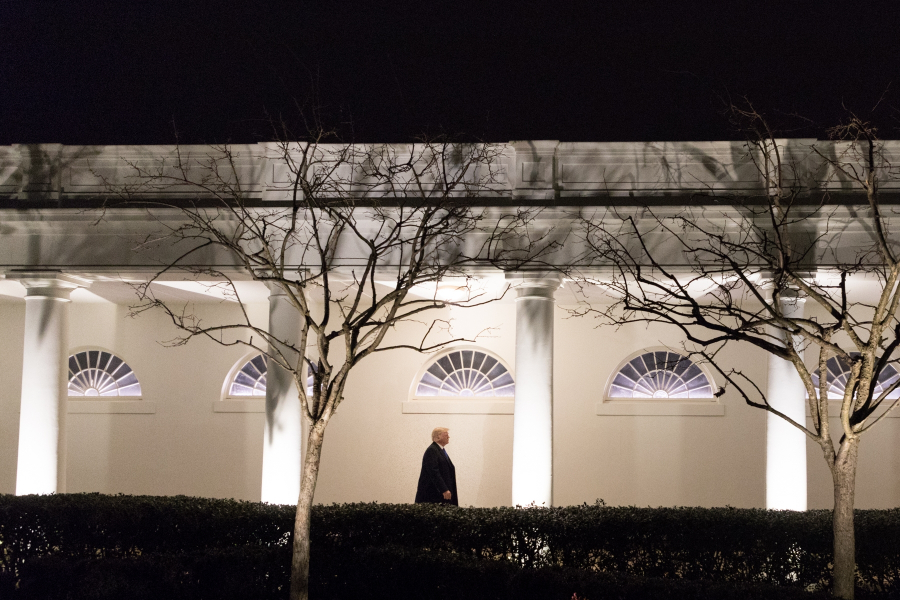Although President Trump retired to his Florida Mar-a-Lago resort for his holiday vacation, he continued to dominate the 24-hour news cycle through his frequent and unsupervised use of social media. Since the twenty-third of December, Trump tweeted forty-six times: about anti-government protests in Iran, "Fake News," Hillary Clinton, the FBI, climate change, and, most recently and worryingly, North Korea.
In both his tweets and in his interviews, Trump has attempted to undermine the Justice Department, going so far as to call it the "deep state," and the FBI. These attempts have occurred in tandem with the progress of the ongoing Russia probe, an investigation into whether the president's campaign colluded with Russia to influence the outcome of the 2016 presidential election. A number of White House officials have expressed concern over these tweets' lack of review, yet the President has defended his unfiltered social media postings as being a necessary alternative to the mainstream media, tweeting: "I use Social Media not because I like to, but because it is the only way to fight a VERY dishonest and unfair 'press,' now often referred to as Fake News Media. Phony and non-existent 'sources' are being used more often than ever. Many stories & reports a pure fiction!"

In addition to his unpredictable use of social media, Trump also sat for an unplanned, unsupervised interview with New York Times journalist Michael Schmidt, one of the Times' top reporters assigned to cover the Russia probe. The interview took place over the course of thirty minutes in a Mar-a-Lago dining room, without any White House staff present. Trump emphasized in this interview that he has the "absolute right to do what I want to do with the Justice Department," yet also contradicted many of his supporters at various conservative media outlet by stating that he believes Robert Mueller, the lawyer appointed to oversee the investigation, will be fair in his findings. However, he also criticized Attorney General Jeff Sessions for not supervising the probe, and claimed (falsely) to have the personal authority to dictate the course of government investigations.
2017 has come to a close, yet the impact of the Trump presidency is only just beginning. The Republican tax plan passed both chambers of Congress. Neil Gorsuch was appointed as a justice for life on the Supreme Court. A foreign power is widely suspected of compromising the integrity of a U.S. general election. And yet, in terms of policy, Trump's administration has stuck to a surprisingly predictable, business-friendly Republican script. The tax plan passed was in line with Republican-backed legislation stretching back decades, and even those Republicans that have been highly critical of Trump cast their votes in its favor. Whether such policies will remain dominant will largely hinge on the results of the 2018 midterm elections, since if Republicans lose their slim majority in Congress, they will find that bipartisanship may be required for the remainder of the Trump presidency.

